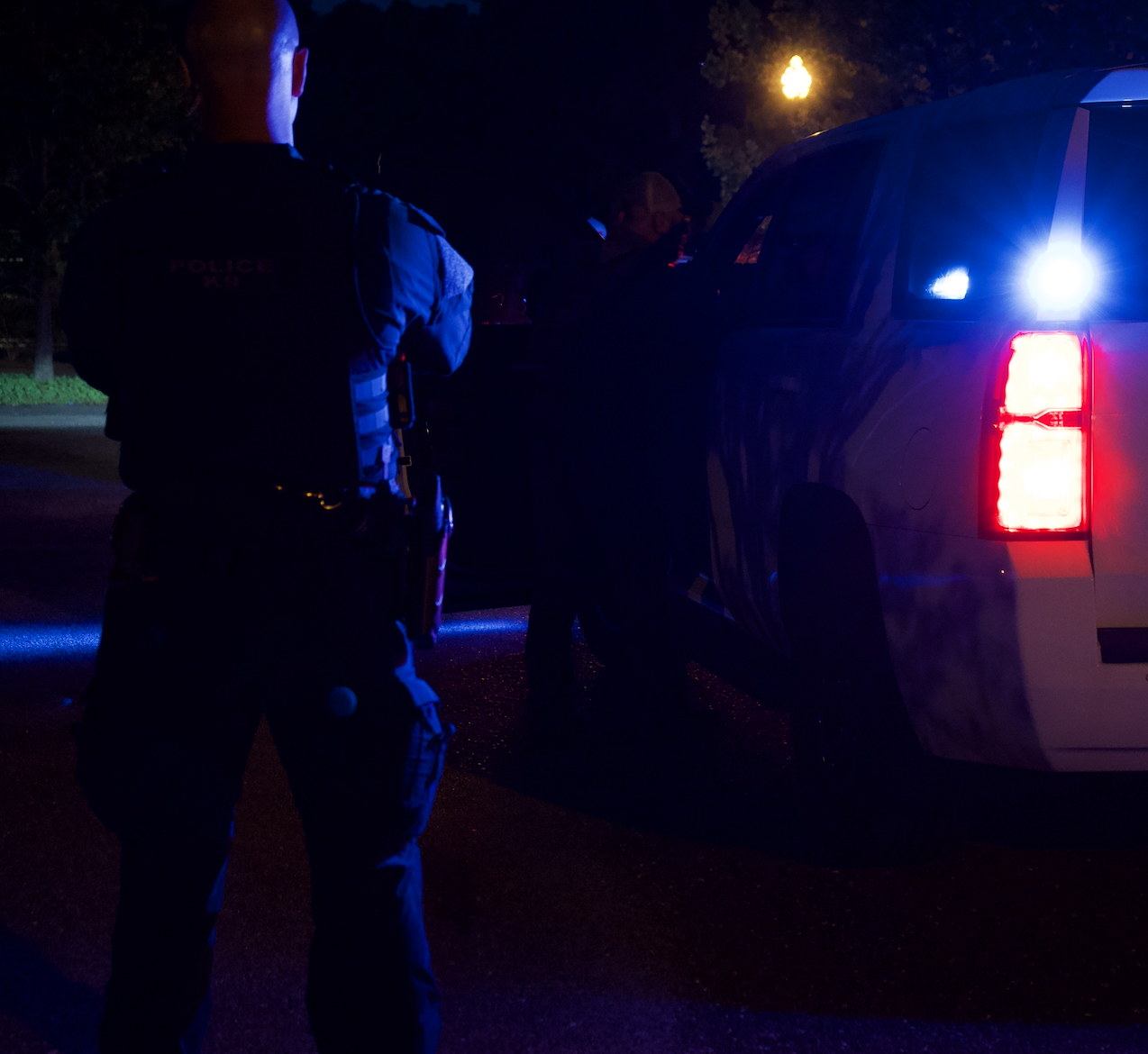6 Night Shift Hacks For Police Officers
Oct 27, 2024
The majority of our Effective Fitness Team Members have endured the brutal night shift at some point in their career. The "night shift" is often referred to as dogwatch, graveyard, and midnights.
How can we make the best of it?
From experience, we have found some essential tools and tricks that have helped us stay healthy, both physically and mentally.
This article will break down these Night Shift Hacks in hopes of helping other officers around the world own the fact that working in the dark is probably one of the toughest things to do, but someone has to do it.
1. Sleep
Let’s talk sleep. When it comes to working odd hours, having a solid sleep regimen is crucial. Most of us aren’t used to sleeping during the day and staying up all night, right? It can take a while for your body to adjust, especially if you’ve had a regular sleep schedule for 15-20 years before jumping into the night shift.
Consistency is key.
Try to stick to the same schedule, even on your days off. If that’s tricky (and I know it can be, especially with kids and family commitments), don’t worry—there’s still hope!
Here are some tips for a healthy sleep regimen:
- Adjustment Days: Before your first night shift, stay up the day before. This helps force your body into a rhythm where you can sleep during the day.
- Create a Sleep Sanctuary: Use double blackout shades, white noise machines, and earplugs to block out daytime disturbances. Trust me, they work wonders when your neighbors are mowing lawns or having construction done!
- Avoid Blue Light: Screens can become a bad habit before bed. Try to eliminate blue light, as it can mess with your sleep cycle.
- Natural Sleep Aids: If you’re considering sleep aids, go for something like melatonin. It’s a natural hormone your body produces, and small doses can help—but remember, it should be a temporary solution.
As life gets busier with family and work, sleep can become less of a priority. But when working night shifts, we need to make it a priority!
Download 22 Secrets to Surviving Night Shift for LEOs
2. Meal Prep

Now, let’s chat about meal prep. Eating healthy on the night shift is super important, and meal prep is your best friend here.
Why?
Because healthy options in the middle of the night? Almost nonexistent! Most officers find themselves hungry during shifts, and if they haven’t prepared meals or snacks, it’s too easy to grab energy drinks or fast food—none of which offer the nutrition you need.
Here are some meal prep tips:
- Set Aside Time: Dedicate 30-60 minutes each week to prep 6-10 meals. It’s worth it!
- Stock Healthy Snacks: Buy in bulk—dried fruits, nuts, jerky, you name it. This reduces the temptation to reach for junk food.
3. Hydration
Next up is hydration. It’s easy to forget to drink enough water during those long shifts.
Hydration Hacks:
- Add Electrolytes: Sprinkle some salt or electrolytes into your water. It’s a simple way to stay hydrated without the added fillers in many sports drinks.
- Monitor Your Hydration: Ideally, you should need to urinate every 2-3 hours if you’re properly hydrated. If not, you might want to up your intake!
Remember, dehydration can impact your sleep quality and overall performance, so don’t let night shifts trick you into thinking you’re hydrated enough.
4. Training
Let’s get moving! Many think that working out on the night shift is a hassle, but with some planning, it’s totally doable.
Training Tips:
- Workout Timing: A lot of folks prefer to hit the gym before their shift. Find what works for you!
- Modify Your Workouts: If you’re feeling off due to lack of sleep or nutrition, it’s okay to modify your workout. Adjust weights, volume, or intensity to suit how you’re feeling.
- Flexibility is Important: If you’re really tired one day, don’t hesitate to skip a workout and rest. Just remember to adjust the rest of your week accordingly.
5. Recovery Protocol
Recovery is another biggie. Your recovery routine might need a little tweaking due to changes in your sleep, nutrition, and training.
Recovery Tips:
- Warm-Up and Cool Down: Don’t skip these! They’re essential for prepping your body and aiding recovery.
Sample Cool-down Routine:
- Foam roll or use a lacrosse ball on sore spots for 3-5 minutes.
- Do 2 rounds of:
- Sumo Squat Stretch (30 seconds)
- Instep Stretch (30 seconds each side)
- Puppy Dog Stretch (30 seconds)
- Finish with 90/90 Box Breathing for 3-5 minutes to help your nervous system calm down.
Download 22 Secrets to Surviving Night Shift for LEOs
6. Move Often

Last but not least, get out of your car! Sitting for long periods can really mess with your posture and overall health.
Movement Tips:
- Get Up and Move: Walk, stretch, and take breaks to keep your body in motion. You should do this during the day, so why not at night?
Oh, and don’t forget about the Effective Fitness Minimalist Program! It’s designed for those using just a set of dumbbells or kettlebells and can be done anywhere, even at work.
Additional Training – Tactics & Combatives
Finding time for combative or firearms training can be tough, but don’t stress! The EFT program includes combative drills you can do solo.
Training Suggestions:
- Dry Fire Drills: Practice these safely at home or during downtime. Just remember to use an empty weapon and ensure there’s no live ammunition around.
- Keep Learning: Use any spare time to read case law or brush up on other important topics.
Always follow your agency’s policies regarding training and safety.
Working the night shift can take a toll on your mental and physical health if you don’t plan ahead. Hopefully, these tools and hacks can make your experience a little smoother!

